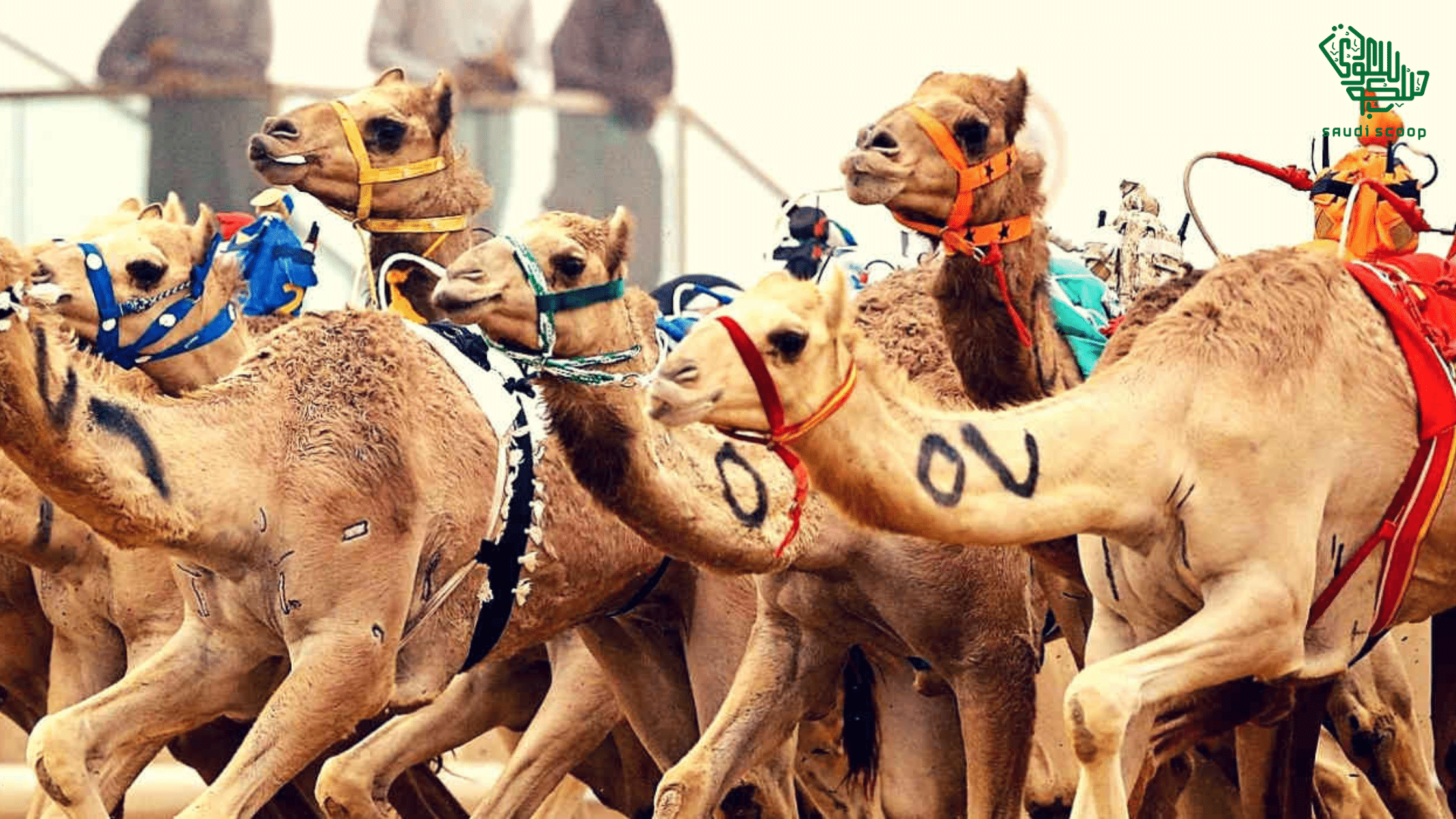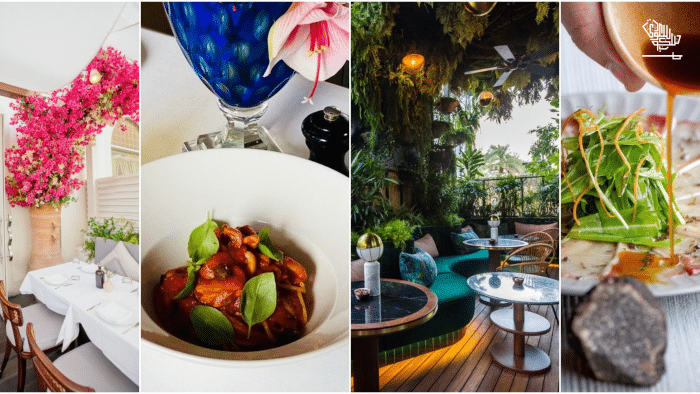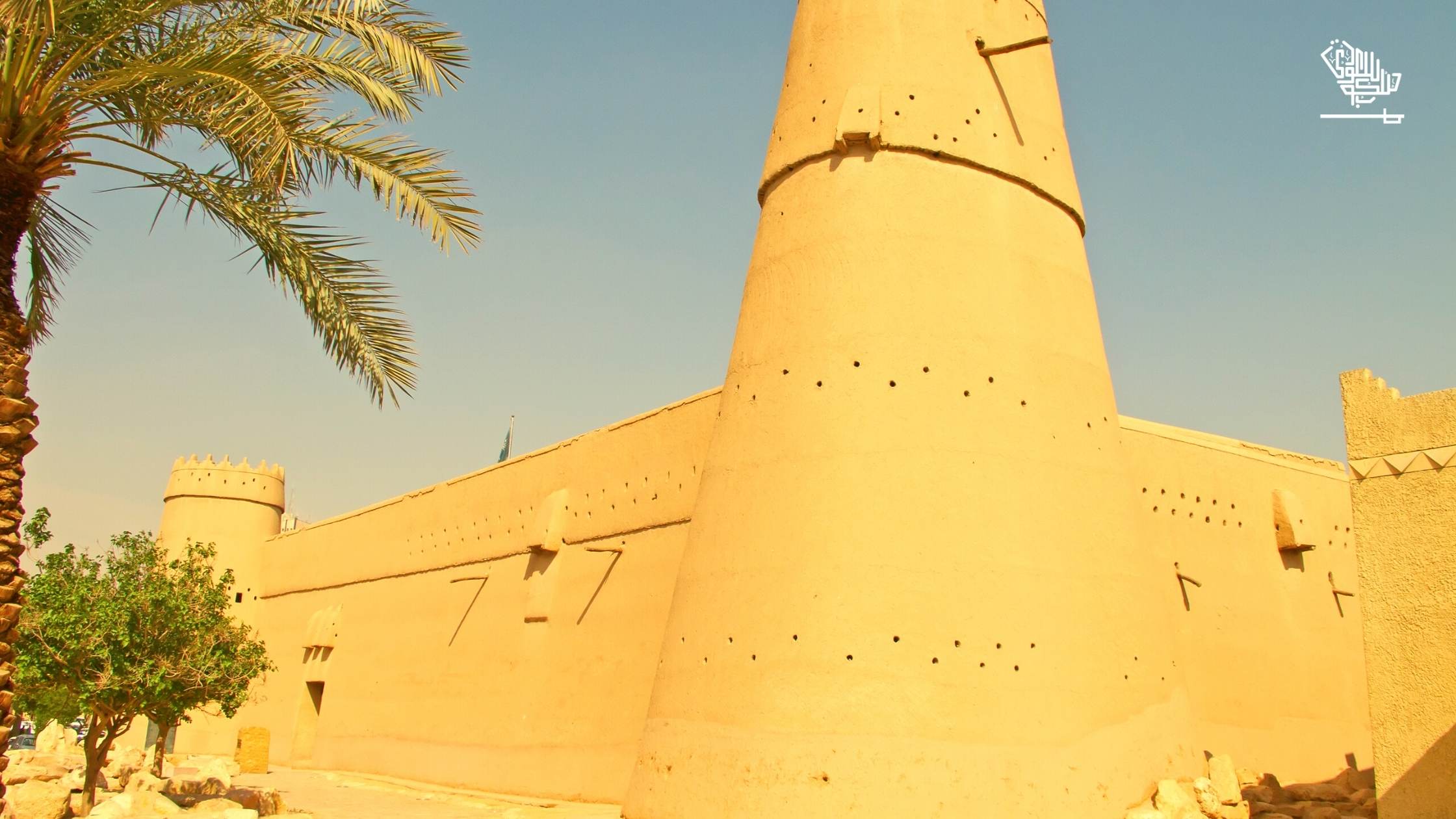Tourists seeking authentic local experiences should check out the horse and camel racing events in Saudi Arabia. Riyadh, the capital city, is the best place to catch these two popular spectator sports, which feature Arabian horses and the best-bred camels in action.
Taif and Sharurah are known for their traditional races too. If you wish to see quality races, plan a trip to Riyadh between November and March or a trip to Taif in August to see some of the best horse and camel racing in Saudi Arabia.
Rules Governing Camel Racing
Rules governing camel races vary from nation to nation.
Trainers and camel owners gather ahead of a race and decide the category that their camel will participate in. the categories are defined by distance and classes, gender, age, and sex. The distances of the course depend on categories. For example, the younger camels run a 4 KM distance, while the older camels compete over a 10 KM course.
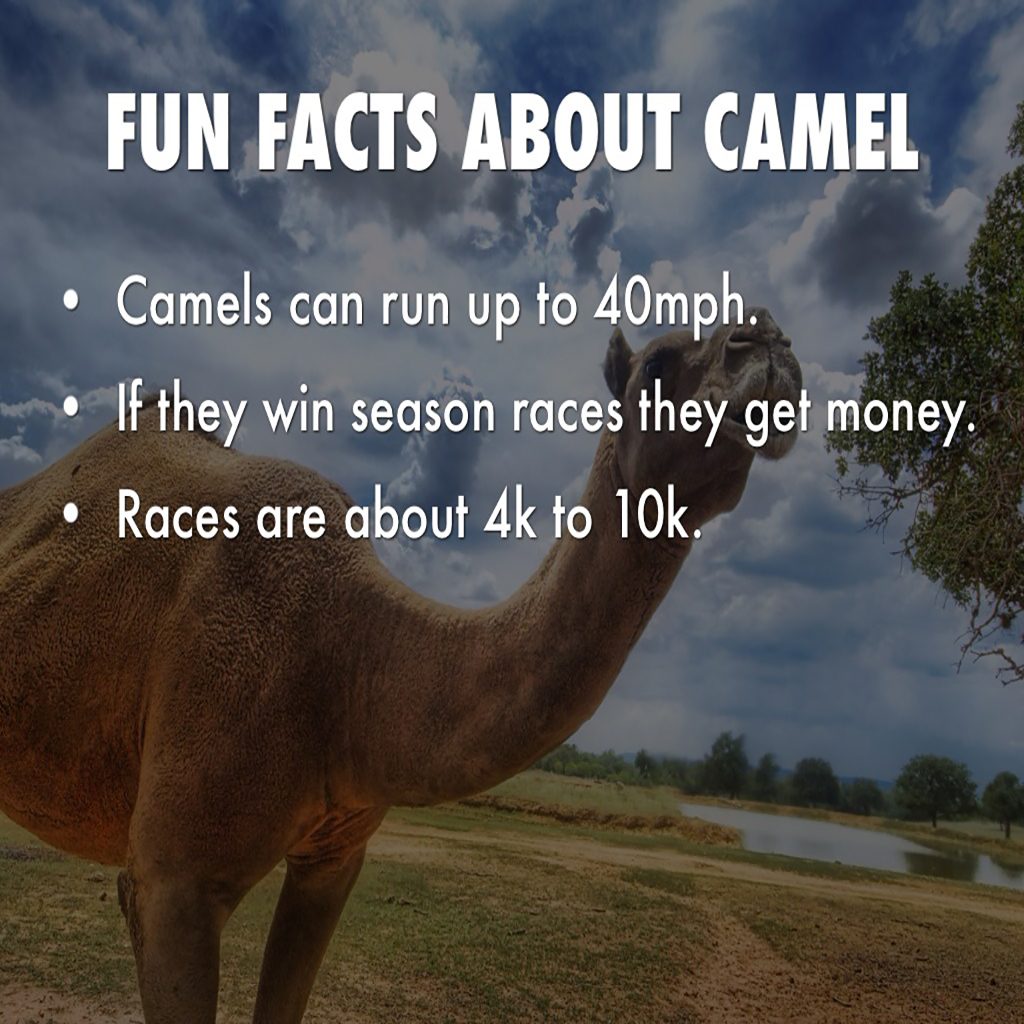
Camels begin racing at the age of between two to three and retire by nine, if not earlier.
National pastime
Camel racing is possibly the most popular traditional sport in the Arab world. It pre-dates the Islamic era when tribes organized the races to show the strongest and fastest camels they owned.
These races continued during the subsequent Islamic era, where Prophet Muhammad’s (PBUH) companions were known for camel racing, promoting equestrian sports.
In Arabic, the race camels have a particular name, “thaluls,” or riding camels in English.
There are many different Thalul breeds, Thalul Al-Hurra ( The Free Camel). From the central and northern Arabian Peninsula, ‘Aseela,’ is from the Thalul Al-Hurra breed. The Omani Thaluls, known for their grace, slim body, and noble manners. And the Sudanese Thaluls, known for their strength and patience in adapting to the challenges of the desert.
Camels are renowned for their tolerance to thirst and traveling greater distances than horses.
A camel would be slightly slower than horses in a sprint race, but there are breeds of camels that travel distances at a speed that exceeds those of horses. A good camel traveling 40 kilometers continuously in an hour is not unusual.
A good racing camel Like racehorses, good racing camels are known by the specific characteristics that distinguish them from regular camels. They are lightweight, have small palms, are broad-chested, and long-legged with a long tail.
Read: Sports in Saudi Arabia: What’s popular?
Racing camels are fed a special diet to help them shed off excess fats. They are fed a regular diet of dates, milk, honey, dry grass, and corn.
Camel racing will sound unusual to tourists visiting Saudi Arabia, but this is the traditional pastime of the Arab world. Camel racing Pre-dates the Islamic era, producing the strongest, fastest, and most beautiful camels continuing today.
Riyadh Beauty Pageant and Races
The annual month-long King Abdulaziz Camel Festival takes place in February. This camel beauty contest draws over 30,000 groomed and primed camels to the Dahana Desert (Ad Dahnaa). The competition showcases the dedication of camel handlers throughout Saudi Arabia and is the highlight of the entire festival.
Camels are judged for graceful features, the lengths of their necks, the shapes of their noses. Runway etiquette, how they strut their stuff is essential during the camel beauty pageant, as the most gorgeous of the camels will fetch prizes of up to a million Saudi riyals.
Read: Plan a trip to Saudi Arabia
The King Abdulaziz Equestrian Field in Alfrusiya Park in Riyadh is a popular place for locals during the cooler winter months. The track offers families a separate section and single visitors viewing from another area. An on-site snack bar keeps the kids busy and happy, while a stylish restaurant overlooking the tracks serves brunch and lunch and allows the female visitors to eat abaya-free.
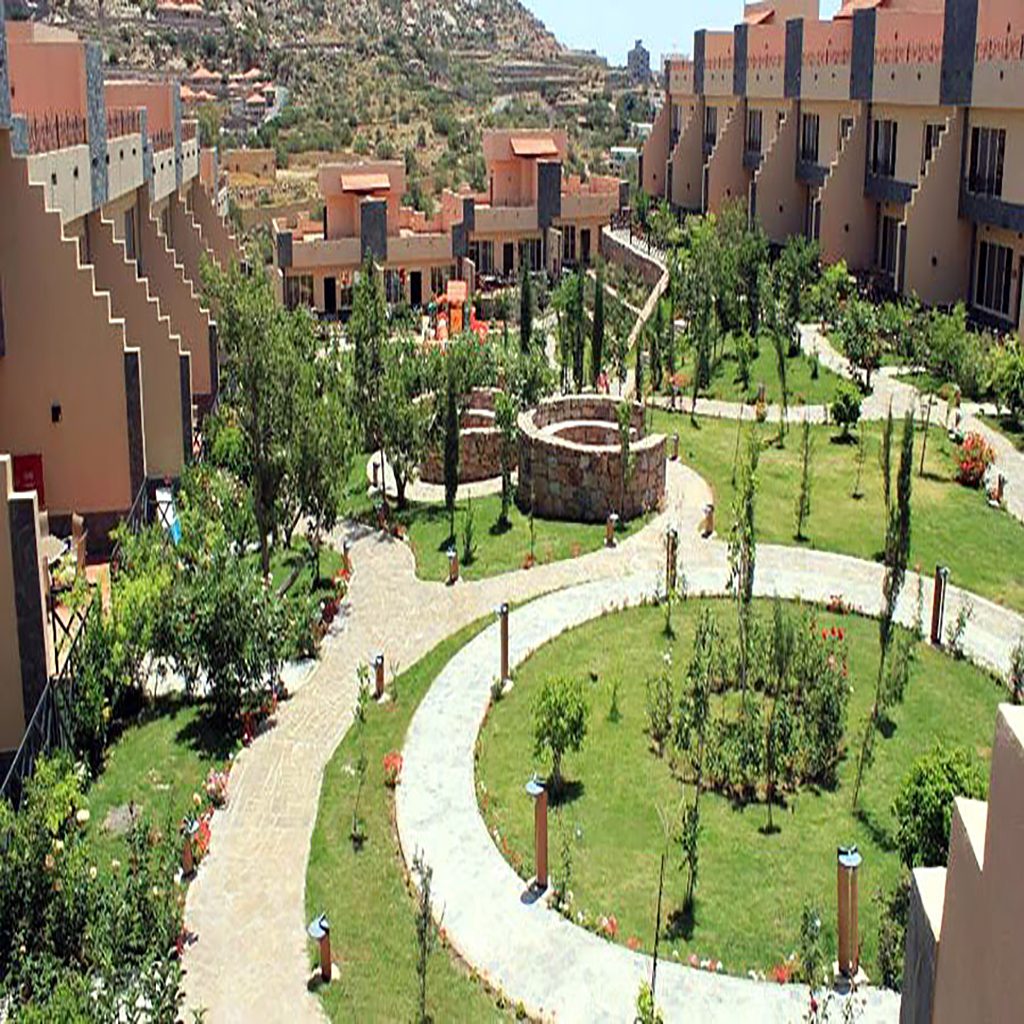
Races start at 2 p.m. and continue till 6 p.m., every Friday and Saturday from November through March. The King Abdulaziz Equestrian Field is located to the north of Riyadh, outside Thumamah National Park.
King Abdulaziz Equestrian Field hosts The Saudi Cup, the richest horse race in the world.
This year Saudi-owned colt Mishriff won the $20 million Saudi Cup. HRH crown prince Mohammad Bin Salman awarded three trophies to the owner of the horse Prince Abdulrahman bin Abdullah Al-Faisal, its jockey David Egan and Thady Gosden, on behalf of his trainer father, John Gosden.
Camel Racing Janadriyah, Riyadh
Janadriyah National Festival of Heritage and Culture is a two-week-long festival at the Janadriyah Cultural & Heritage Festival Venue near King Abdulaziz Equestrian Field Riyadh. The festival held traditionally during February is Saudi Arabia’s most important historical and cultural festival. Participants see camel races and experience Saudi folk art, music, and literature.
Camel racing Thumamah District, Riyadh
Camel racing is discontinued at the Thumamah National Park, but tourists get to ride camels themselves. This sprawling desert serves as a respite from the bustle of Riyadh. Locals pack the park on weekends to ride quad bikes over the dunes, climb rocks, and camp under the stars. Local farmers keep herds of camels and horses, and tourists are welcome to ride these animals, paying the designated fee.
The Crown Prince Camel Festival, Taif
During August, travelers to Taif get to see the newly-established Crown Prince Camel Festival, coinciding with the annual Souk Okaz Festival. The camel festival features over 10,000 camels competing over 400 rounds of the competition for cash prizes totaling in excess of 52 million Saudi riyals.
Camel racing Sharurah, Empty Quarter
Adventure seekers visiting Sharurah will be rewarded for making the trip down south to the Empty Quarter, where camel racing is just picking up. Regular races take place in the town of Sharurah, near the Yemen border. Long-time residents and tribal members host these races to attract tourism to this off-the-beaten path.
Travel tip: The Empty Quarter in the south of Saudi Arabia is seeing a higher rate of tourism; tourists should exercise caution while visiting. Foreigners are advised to always travel with a local guide.

Faisal Malik is an accomplished author and the Chief Editor at Saudi Scoop. With a passion for delivering insightful and engaging content, he leads the editorial team, covering diverse topics that resonate with readers. His expertise in journalism and storytelling ensures high-quality, well-researched articles that inform and inspire.


